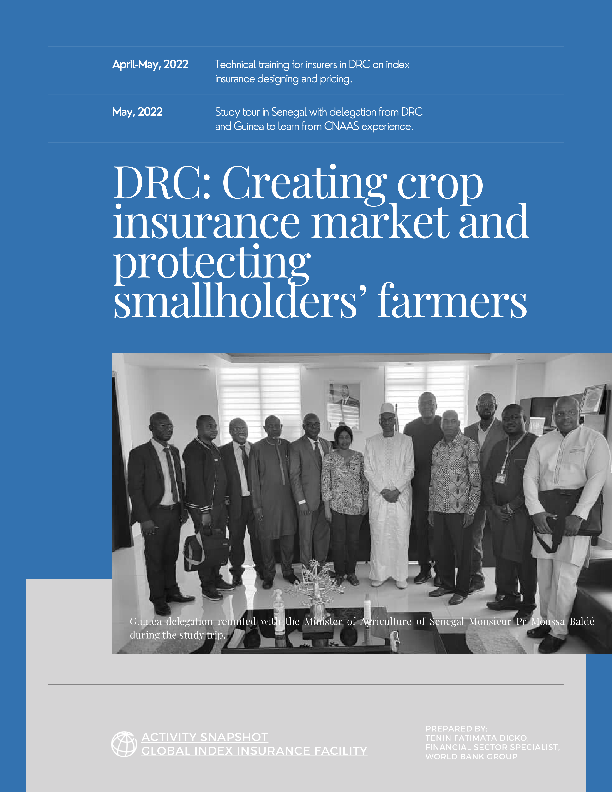DRC: Creating crop insurance market and protecting smallholders’ farmers

Located in the heart of Africa, with a land surface area of 2.3 million km2, the Democratic Republic of Congo (DRC) is the largest country in Sub-Saharan Africa (SSA) with rich soil and subsoil; over 80 million ha of fertile and arable land and 52 percent of all freshwater resources in SSA. Agriculture accounts for about 20 percent of GDP and employs some 70-75 percent of the economically active population[1]. DRC could potentially feed the entire African continent, yet it is currently unable to adequately feed its own population. The immense potential of the agricultural sector as a vehicle for poverty reduction and economic development is largely untapped. People in the agriculture sector are exposed to many risks as well as financial shocks that reinforce the cycle of poverty. However, financial services particularly insurance can help manage these risks and shocks more effectively.
In DRC, the lack of an appropriate risk management mechanism is among the constraints to access to finance in the agricultural sector. Indeed, the insurance sector is largely underdeveloped with a penetration rate of less than 1%. From 1966 to 2015, the only insurer, SONAS, had the legal monopoly of all insurance activities in the country. In 2015, the Insurance Code liberalized the sector, allowing the establishment of the Insurance Regulation and Control Authority (ARCA, by its French acronym) in 2017. Since then, eight insurance companies and many brokers have been licensed and are operating in the market. The market is estimated to have a growth potential of at least $500 million in premium volume.
The development of agricultural insurance will not only increase the penetration of insurance but could also play an important role in improving access to credit for farmers in the DRC while increasing the resilience of households and businesses dependent on agriculture. Closing the protection gap in the agricultural sector will contribute to improving the performance of the agriculture and insurance sectors and requires the implementation of several simultaneous actions, which the GIIF is supporting as part of a WBG project.
[1] World Bank 2017, DRC Agriculture Sector Review
Click here to read the full activity snapshot.
